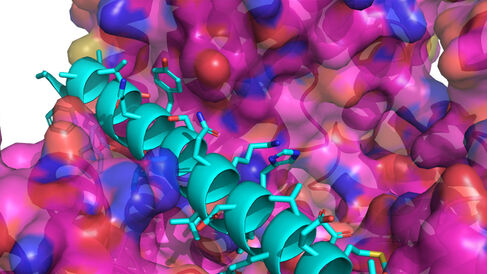
PolyProx Therapeutics, a new biotechnology company focused on the discovery and development of novel biopharmaceuticals for the treatment of cancer, today announced that it has raised £3.4m of seed capital.
A spin-out of the Department of Pharmacology at the University of Cambridge, PolyProx Therapeutics is based on over a decade of research and intellectual property from Founder, Professor Laura Itzhaki’s laboratory. Professor Itzhaki is joined at PolyProx Therapeutics by serial Cambridge biotech entrepreneurs Kevin Moulder as Chief Operating Officer and Andrew Sandham as Executive Chairman.
PolyProx Therapeutics will develop a new class of drugs, called Polyproxin™ molecules, that are able to selectively target tumour cells and trigger the natural degradation machinery contained within the cell to arrest tumour growth.
Polyproxin™ molecules target disease-causing proteins within tumour cells and trigger pathways to eliminate these proteins, thereby halting further growth of the tumour. This approach has the potential to address cancer targets that have proven untreatable using current technologies, important in major diseases such as lung, colorectal and pancreatic cancers. The technology behind this approach uses protein scaffolds to link a targeting entity at one end and a degradation trigger at the other, assembled in such a way as to allow access to the tumour cell and recyclable activity.
The financing, which was co-led by Cambridge Enterprise, sister organisation Cambridge Innovation Capital plc (CIC) and RT Capital will support research operations to validate the technology across a range of tumour targets over the next two years.
Professor Laura Itzhaki, Founder and Chief Scientific Officer, PolyProx Therapeutics commented:
“We are thrilled to have closed the seed round, and this will enable us to grow the PolyProx team and further develop our technology over the next two years. Our platform, which harnesses the cell’s natural protein degradation pathways, should allow access to many hard-to-drug targets and enable screening of molecules against these targets more quickly than existing approaches. We are excited to continue the discovery process in our labs at the Babraham Research Campus as we enter the next phase of our development.”
To read the full article please visit the University of Cambridge Website.
